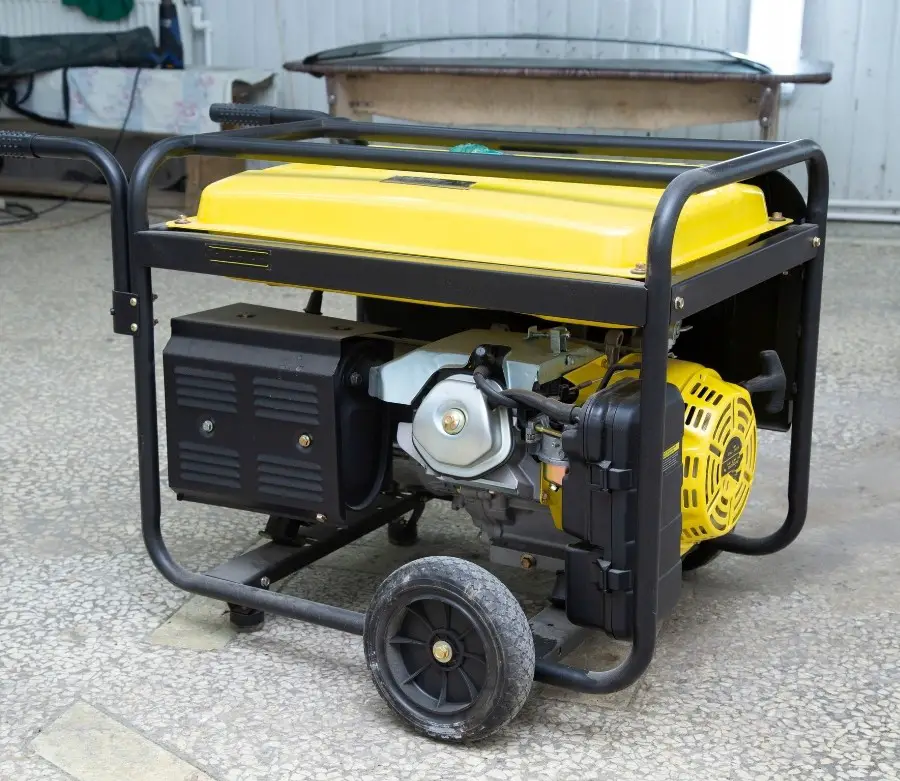
When determining how long you can continuously run a generator, there are specific factors to keep in mind. Generators are not all the same, and the length of time they can run without damaging the machine varies.
Depending on the type of generator, the fuel tank’s size, and what fuel it uses, continuous run time recommendations vary from a few hours to days or even weeks.
How long can you run a generator continuously? Portable generators using gasoline have the shortest continuous run times, with most able to run up to 12-24 hours. Portable generators using propane can run for up to 150-200 hours with proper maintenance. Standby generators have the longest run times, and most can be used for up to 500 hours.
It is important to be aware of your generator’s requirements and abilities, as those vary by brand and type, too. Knowing how to maintain and operate a generator will help to extend its life, so it is in good working order when you need it.
In the following, we’ll look at different brands, types, and continuous run times of generators to see what they have to offer.
How Long Can You Run A Portable Generator Continuously?
Portable generators are the most convenient but also the most limited type of generator. They’re great when the power goes out and you need a backup electricity source.
Most can run for eight hours continuously depending on the fuel tank, with some able to run up to 12 or 24 hours.
The first place to look for information on your generator’s continuous run time is the manual. Other things to consider when determining how long you can continuously run your portable generator include:
- Size of the fuel tank – most gas-fueled portable generators have 1 to 10-gallon tanks, which provides about 10-13 hours of continuous runtime per tank.
- Type of fuel – propane generators offer more options for prolonged use with proper maintenance with tank sizes ranging from 4.5 gallons to 500 or 1,000 gallons.
- Wattage – generators with smaller wattage use less fuel per gallon, allowing them to run longer on one tank of fuel.
- Power load – the more things you have drawing energy from your generator, the less continuous run time it will have.
- Maintenance – all generators have specific requirements for regular upkeep and proper use provided in the manual. Well-maintained generators that are appropriately operated have longer continuous run times.
One main thing to remember when using portable generators is that they all require a little downtime between uses to cool off.
Check the runtime rating for your generator in the manual, and do not run the generator longer than the manufacturer recommends. Not only will this keep your generator in good working order longer, but it is also a good safety measure.
How Long Can A Generator Run on One Tank of Gas?
Since it can be highly unsafe to refuel a generator while it is still running, it’s good to know how much continuous run time you will get on one tank of gas.
Here are some popular generator brands and their run times per tank of gas.
| Generator | Fuel Capacity | Wattage | Maximum Run Time per Tank |
| Durostar DS4000s | 4 gallons | 4,000 peak watts
3,300 rated watts |
8 hours |
| Honda 2200i | 0.95 gallons | 2,200 watts | 8.1 hours |
| Yamaha EF2000iSv2 | 1.1 gallons | 2,000 peak watts
1,600 rated watts |
10.5 hours |
| Generac 76711 GP1200i | 0.8 gallons | 1,200 peak watts
1,000 rated watts |
11 hours |
| Honda EU3000iS | 3.4 gallons | 3,000 peak watts
2,800 rated watts |
20 hours |
Note that the maximum runtimes for generators reduce with higher power loads. If you use your generator for a lower power load, you can expect longer run times.
Can I Run A Generator Overnight?
It is possible to run a generator overnight, but there are some guidelines to follow when doing so. Because most portable generators can run continuously for about eight hours, running one overnight is optional, depending on the fuel capacity and power load.
Noise levels are also a factor to consider when deciding whether to run your generator overnight.
Some generators are quieter than others with the average noise level for gas-fueled generators somewhere between a car and a lawnmower.
Where you place your generator is essential, too – not just for convenience or to avoid having to listen to the noise, but for personal safety.
Never run your generator in an enclosed space as the fumes generated by burning gasoline can be dangerous. Making sure to have a working CO detector will help reduce personal safety risks as well.
Are There Generators That Can Run Nonstop For 24 Hours?
If you’re looking for a generator that can safely run nonstop for 24 hours or more, a dual-fuel generator is your best bet.
These generators can run on either gas or propane and usually offer higher wattage output, allowing them to run longer and handle a higher power load.
That being said, generators are not made to be a sustained, main power source, and running one continuously too often will reduce the efficiency and lifespan of the machine.
Like cars, generators also use oil that must be checked and changed regularly. The average run time between oil changes for generators is about 200 hours, so if you don’t run out of fuel by then, you will likely still have to stop the machine to change the oil.
A good idea if you often find yourself in need of backup power is to have two generators—one for main use or higher power loads and another (usually smaller and portable) generator for when you need to refuel or service your main generator.
There are many quality, cost-efficient generator options available making it relatively easy to find one that will meet your needs.
Conclusion
One of the most useful modern inventions, generators are a great backup power source for whenever the need might arise. If you live in an area with harsh weather, you have probably experienced a power outage at least once.
Most power outages do not last long enough to cause serious problems, but sometimes they can last for several hours or even days. Having at least one generator on hand can be an actual lifesaver in these situations.
When choosing what kind of generator to fit your needs, keep in mind how often you will be using it, what level of power load you need, and what kind of fuel the generator uses.
If you connect appliances or other devices that use higher amounts of power, you will likely want a generator with a larger fuel tank and a higher wattage.
If you need a generator that is easily transported or wants something that is still useful but doesn’t eat up as much fuel, a smaller, portable generator is a good choice.
Remember, when using a generator, always read through the manual. Each generator has specific requirements for operation and maintenance, and if a generator is not used or maintained properly, it won’t last as long.
Not only that, but improper use, refueling, and placement of a generator poses personal safety risks.
Following the guidelines and ratings in your generator’s manual will help you make sure your generator is in good working order when you need it.
Sources:
https://www.generatorszone.com/run-generator-continuously/
https://generatorgrid.com/blog/continuous-running/
